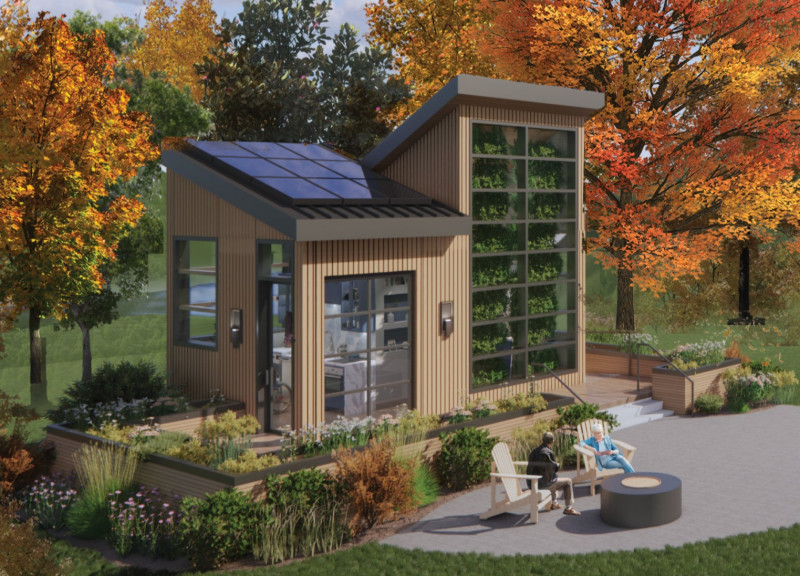5 key facts about this project
Domus Aeterna showcases a practical approach to residential design with a focus on flexibility and sustainability. Situated to blend with its natural surroundings, the project aims to create homes that serve as more than just shelter but also adapt to the changing needs of their occupants. The design is built on the principles of universal and regenerative architecture, providing an inclusive living environment for diverse populations.
Universal Adaptability
The concept emphasizes modular construction, allowing for customization of walls and roofs according to individual preferences. Residents can modify their living spaces over time, adjusting to their physical and emotional needs. Features like low-profile furniture and adjustable work surfaces improve access throughout the homes, making it easier for everyone to move around comfortably.
Sustainable Features
A commitment to sustainability is evident in the design choices, which prioritize the use of safe and healthy materials. The homes incorporate renewable energy options such as solar panels and systems for collecting stormwater, enhancing their overall efficiency. Additional features like greywater tanks and composting toilets help reduce waste and promote resource conservation, reflecting a responsible approach to environmental impacts.
Community-Centric Design
The design also plans for the arrangement of multiple homes in close proximity, encouraging a sense of community among residents. This layout allows for opportunities to share resources and support one another while still offering privacy. Adaptability to local conditions is a key consideration, ensuring that the homes fit well with their community and climate.
Innovative Living Solutions
Distinct elements such as aeroponic food walls highlight the integration of sustainability into everyday living. These features encourage personal food production, promoting self-sufficiency and a connection to the environment. By incorporating such practical solutions, the design advances a vision of living that emphasizes both individual well-being and a strong community fabric.




















































